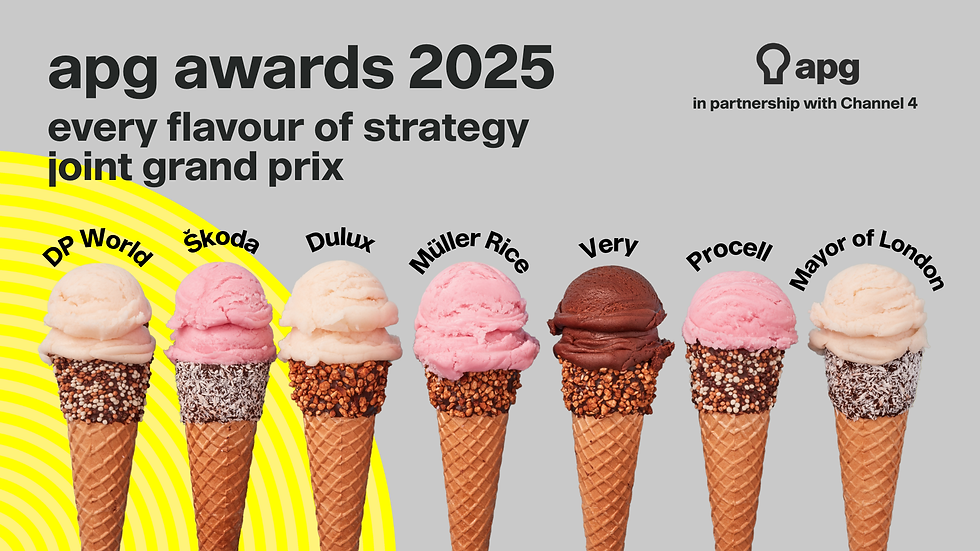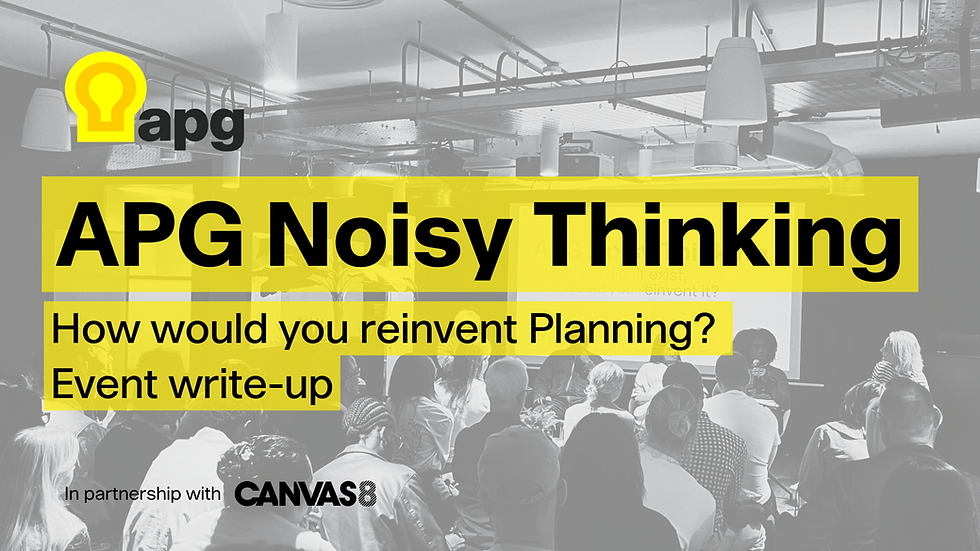Information Diet | Tom Chatfield
- APG

- May 9, 2018
- 3 min read
This is part of the series 'How to be Curious - Cognitive Fitness for Planners' by Ian Leslie, our APG Guest Editor during April 2018. He believes that strategists need to be curious and stay curious and the only way to do that is to excersise your brain as you do your body. One important aspect of fitness is diet.
Here he gives you a look at the information diets of different strategists, via a Q&A.
Tom Chatfield

1. Outside of ad industry/marketing sources, what are your daily must-reads for information?
In honesty, I rely on weekly rather than daily reading to help me keep some kind of perspective: I subscribe to The Economist for a global digest that I can just about handle. I tend to look to the BBC and Guardian and New York Times for news, but I don't even try to keep up on a daily basis.
2. Which websites, if any, do you go to when you want to spark new ideas and insights?
I enjoy reading recommendations from Five Books, longer form essays on Medium, and the Stanford Encyclopedia of Philosophy for random profound provocations - its 'random entry' link is my homepage
3. Are there any magazines/periodicals you read regularly?
As well as the Economist, I subscribe to the London Review of Books, Private Eye and The Atlantic, and regularly flick through Prospect, 1843, Harpers and a scattering of literary magazines. How far I get through any of these depends on factors such as children, sleep and deadlines...
4. Are there particular writers you find to be a regular source of insight and inspiration?
I honestly feel I can't answer this - as my answers below suggest, I spend most of my time reading books, and none of this feels especially regular.
5. Which social media, if any, do you find most intellectually stimulating?
I only really use Twitter, these days; it allows me to kind-of keep-up with friends and people I admire; to collect sparks of wit and energy; to find surprises, and to try to puncture my filter bubble a little through following people with different perspectives to me. But I aim not to spend that much time on social media (although I sometimes fail spectacularly)
6. Which podcasts and YouTube channels do you like?
I don't listen to much. Philosophy Bites, Ctrl Alt Delete, silent movies, Radio 4 comedy - really, it's about written words for me - and playing the piano, which I do most days
7. When and how do you find time to read books, and do you pursue any particular reading strategy (fiction vs non-fiction, recommendations, etc)?
Reading books is the most important part of my working life. For whatever reason, I find it more and more important to be reading several serendipitous books at any one time, and to give myself permission to follow enthusiasms across genre. I read a couple of books a week, on average, and use reading time to recharge my thinking - focused time in the company of a book is such a privilege and pleasure. One of my favourite habits is asking people I meet to recommend one book that they think I ought to read. It has proved a brilliant source of new ideas, and a book recommendation is a lovely thing to take away from a meeting.
7. Is there a book or books that changed the way you think about your work?
I'm constantly being changed by books. The elegance and rigour of Bryan Magee's short book about Popper is a model of explanatory clarity that I would love to live up to. In a different way, Nigel Warburton and Julian Baggini have inspired me as a wonderful thinker and communicator of big ideas. I love the way that novelists like Naomi Alderman and Julian Gough leap between genres, and are restlessly interested in language, big ideas and story-telling. Science fiction writers like Charles Stross, Ursula K Le Guin and Greg Egan have such imaginative scope in their world-building. I constantly return to the poetry of authors like WB Yeats, Patrick Kavanagh, Louis MacNiece, Thomas Hardy, Philip Larkin. The novels of Tolstoy, Eliot, Dickens - the philosophy of Hume and Kant - the world of great books is bottomless, and that's a constant source of awe and envy and inspiration.
9. What topic would you most like to learn more about?
Getting to grips with the intricacies of computer science and AI feels more and more important. I fantasise about having the time to do a degree in maths and computing - that would be a wonderful way to spend a few years, if I could ever manage to carve out the capacity.




Comments